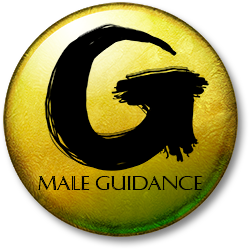
What to Know Before Starting Testosterone

The Risks of Testosterone Replacement Therapy
Testosterone replacement therapy (TRT) has become a popular treatment for men with low testosterone levels. While it can improve energy, muscle mass, and mood, it also carries risks. It is important to understand these risks before deciding if TRT is right for you.
What Is Testosterone Replacement Therapy?
Doctors use TRT to treat men with low testosterone, also called low T. As men age, testosterone levels naturally decline. For some, this leads to symptoms like fatigue, low sex drive, and reduced muscle strength. TRT helps restore testosterone levels through injections, patches, gels, or pellets.
Common Side Effects of TRT
Many men experience side effects when starting TRT. These include acne, oily skin, and increased sweating. Some men may develop swelling in their feet or ankles due to fluid retention. Others report breast tenderness or enlargement. These issues often decrease as the body adjusts to therapy.
Serious Health Risks of TRT
TRT may increase the risk of serious health problems. These risks include:
- Heart Problems
Studies show TRT can raise the risk of heart attacks, strokes, and blood clots. Testosterone thickens the blood, increasing the risk of clots that block blood flow to the heart or brain. - Prostate Health Issues
TRT may enlarge the prostate, leading to urinary problems. Some doctors worry TRT might also fuel the growth of prostate cancer. While evidence remains unclear, men with prostate cancer should avoid TRT. - Sleep Apnea
TRT can worsen sleep apnea, a condition where breathing stops and starts during sleep. This condition disrupts rest and increases the risk of other health issues like high blood pressure and heart disease. - Lower Fertility
Men on TRT may produce less sperm, which lowers fertility. Some men experience testicular shrinkage because TRT reduces natural testosterone production.
Monitoring and Mitigating Risks
Men considering TRT should undergo a thorough medical evaluation. Doctors use blood tests to measure testosterone levels and check for underlying conditions. Regular follow-up visits help monitor side effects and adjust dosages as needed. Men should also discuss lifestyle changes that can boost testosterone naturally, such as exercise, weight management, and a healthy diet.
Who Should Avoid TRT?
TRT may not suit everyone. Men with a history of heart disease, prostate cancer, or blood disorders should explore other treatment options. Young men looking for muscle-building shortcuts should avoid TRT, as the risks outweigh the benefits for non-medical use.
Final Thoughts
TRT offers benefits for men with low testosterone, but it is not without risks. Carefully weigh the pros and cons with a healthcare provider. Take steps to stay informed and prioritize safety. Understanding the potential dangers can help you make the best decision for your health.











